Sei Samay (সেই সময়) by Sunil Gangopadhyay
Author: Sunil Gangopadhyay
এই সেই সময় যখন কলকাতার বাবুসমাজ সুরা, নারী ও বুলবুলি-বিলাসে মগ্ন, যখন নব্যশিক্ষিত যুবকেরা প্রাণপণে ইংরেজ-অনুকরণে মত্ত, গ্রাম নিঃস্ব করে প্রজাশোষণের অর্থে চলেছে সংস্কৃতি চর্চা, সমাজ ও ধর্ম সংস্কার,তরুণ বিদ্যাসাগর রাত্রি জেগে রেড়ির তেলের আলোয় রচনা করছেন বাংলা গদ্যভাষা, জেগে উঠছে মধ্যবিত্ত শ্রেণী, এই সেই সময়-হ্যাঁ, একটি বিশেষ সময়ই সুনীল গঙ্গোপাধ্যায়ের এই সুকীর্তিত উপন্যাসের মুখ্য চরিত্র।
Language: Bengali
Publisher: Ananda Publishers
Binding Type: HARD COVER
Number of Pages: 710
MRP: 1000 INR
Your Price: ₹920.00
Related products
Sei Samay (সেই সময়) by Sunil Gangopadhyay
Sei Samay by Sunil Gangopadhyay
সেই সময় যখন কলকাতার বাবুসমাজ সুরা, নারী ও বুলবুলি-বিলাসে মগ্ন, যখন নব্যশিক্ষিত যুবকেরা প্রাণপণে ইংরেজ-অনুকরণে মত্ত, গ্রাম নিঃস্ব করে প্রজাশোষণের অর্থে চলেছে সংস্কৃতি চর্চা, সমাজ ও ধর্ম সংস্কার,তরুণ বিদ্যাসাগর রাত্রি জেগে রেড়ির তেলের আলোয় রচনা করছেন বাংলা গদ্যভাষা, জেগে উঠছে মধ্যবিত্ত শ্রেণী, এই সেই সময়-হ্যাঁ, একটি বিশেষ সময়ই সুনীল গঙ্গোপাধ্যায়ের এই সুকীর্তিত উপন্যাসের মুখ্য চরিত্র। তিনি নিজেও এ-উপন্যাস সম্পর্কে লিখতে গিয়ে বলেছেন— “আমার কাহিনীর পটভূমিকা ১৮৪০ থেকে ১৮৭০ খ্রীষ্টাব্দ। এবং এই কাহিনীর মূল নায়কের নাম সময়।” লিখেছেন, “সময়কে রক্ত-মাংসে জীবিত করতে হলে অন্তত একটি প্রতীক চরিত্র গ্রহণ করতে হয়। নবীনকুমার সেই সময়ের প্রতীক।
তার জন্মকাহিনী থেকে তার জীবনের নানা ঘটনার বৈপরীত্য, শেষ দিকে এক অচেনা যুবতীর মধ্যে মাতৃরূপ দর্শন এবং অদ্ভুত ধরনের মৃত্যু, সবই যে সেই প্রতীকের ধারাবাহিকতা, আশা করি তা আর বিশদভাবে এখানে বলবার প্রয়োজন নেই। প্রয়োজনীয় কথা শুধু এই যে, নবীনকুমারের চরিত্রে এক অকাল-মৃত অসাধারণ ঐতিহাসিক যুবকের কিছুটা আদল আছে। অন্য কোনো প্রসিদ্ধ পুরুষের নাম বা জীবনকাহিনী আমি বদল করিনি…”।সত্যিই তাই। নাটকের শুরুতে যেমন দেওয়া থাকে পাত্রপাত্রীর নাম ও পরিচয়, তেমনভাবে এই বিপুল বর্ণাঢ্য উপন্যাসেরও গোড়াতেই যদি দেওয়া থাকত নবীনকুমারের সমকালীন চরিত্রাবলির নাম, বস্তুতই বিস্ময়কর মনে হত সেই তালিকা। মাইকেল, বিদ্যাসাগর, ডিরোজিও, হেয়ার সাহেব, দেবেন ঠাকুর—কে নেই। সমগ্র ঊনবিংশ শতাব্দীই যেন নানান চরিত্র হয়ে চোখের সামনে জীবন্ত।
About Sei Samay
Sei Samay (Those Days) by Sunil Gangopadhyay is a monumental historical novel that immerses readers in the intellectual and social ferment of nineteenth-century Bengal. Considered one of the most important works of modern Bengali literature, it recreates with painstaking detail the era of the Bengal Renaissance, a period that witnessed dramatic shifts in culture, education, politics, literature, and social thought under the shadow of colonial rule. Published by Ananda Publishers and winner of the Sahitya Akademi Award in 1985, the novel remains both a literary masterpiece and a cultural document.
The narrative is anchored around Nabinkumar, a character modeled on the real-life Kaliprasanna Singha, a young zamindar and patron of literature, best remembered for his Bengali prose translation of the Mahabharata. Through Nabinkumar’s perspective, Sunil Gangopadhyay introduces a vast gallery of historical and fictional characters, blending imagination with fact in a way that brings the nineteenth century alive. Nabinkumar becomes both participant and observer, a lens through which readers encounter a society in flux.
At the heart of Sei Somoy lies the tension between tradition and reform. This was a period when figures such as Ishwar Chandra Vidyasagar were campaigning for widow remarriage and women’s education, often facing fierce opposition from conservative circles. The novel portrays these struggles not as abstract debates but as lived realities, affecting families, marriages, and communities.
Alongside social reform, the novel captures the literary flowering of the time. Michael Madhusudan Dutt, the first great modern Bengali poet, appears as a restless genius torn between ambition and disillusionment, experimenting with Western forms yet rooted in his own language. The Tagore family, especially Dwarkanath and Debendranath, emerge as patrons, thinkers, and cultural icons, embodying both cosmopolitan modernity and spiritual revivalism. Through them and others, Sunil shows how Bengali literature and culture were reimagined in dialogue with both Indian traditions and European influences.
Colonial Calcutta forms the vibrant backdrop of the story. From the grandeur of the elite households to the squalor of the streets, the city is portrayed as a place of contradictions—where English education sparks new aspirations, where reformist movements clash with age-old customs, and where political awareness slowly takes root under the oppressive presence of the British Empire. Figures such as David Hare and John Bethune, reformers from Britain who left a lasting impact on education in Bengal, appear as part of this complex mosaic.
Also Read and Buy Sunil Gangopadhyay’s famous book Purba Pashchim at Spectrashop.
Get more info on books and reviews at www.spectralhues.com
| Weight | 1.2 kg |
|---|---|
| Dimensions | 8 × 1 × 10 cm |

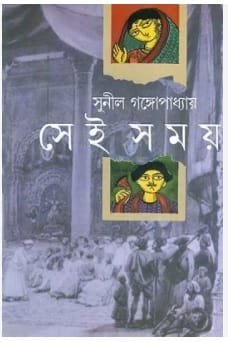

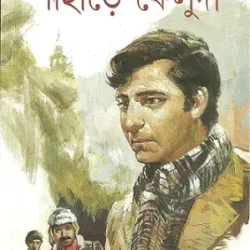
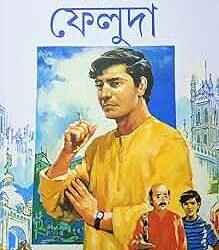
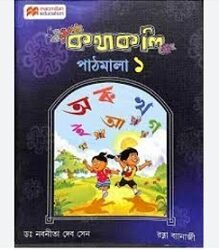
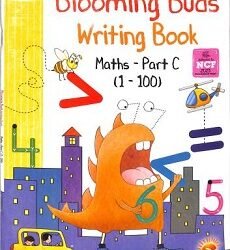

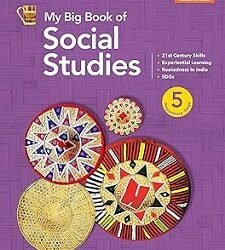
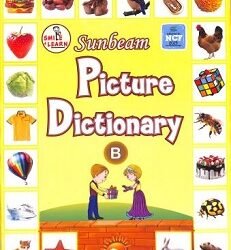
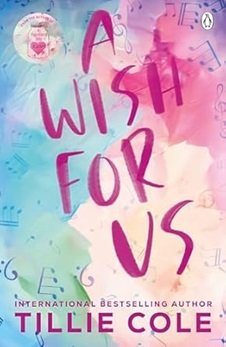
Reviews
There are no reviews yet.